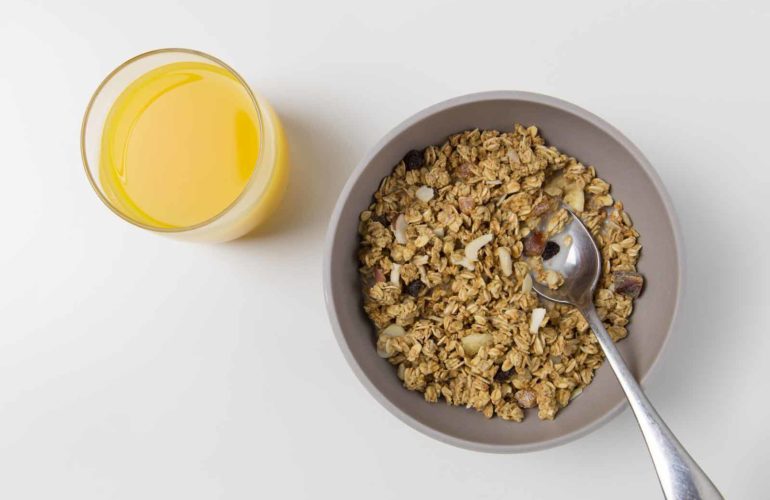Oats are among the healthiest grains on earth. They’re a gluten free whole grain and a great source of important vitamins, minerals, fibre and antioxidants. Oat groats, the most intact and whole form of oats, takes a long time to cook. As a result, most people prefer rolled, crushed or steel cut oats. Oats are commonly eaten for breakfast as oatmeal which is made by boiling oats in water or milk. The overall nutritient composition of oats in well balanced. However, there are different categories and types of oats available in the market. Let us see the different types or categories which exists and how good or bad are they for you!
Nutritional Facts (30 grams raw oats)
- Calories : 115
- Carbs : 18
- Protein : 4.8
- Fiber : 3.2 (mostly soluble)
- Fat : 2
- Oats also contain manganese, phosphorus, copper, vit B 1, iron, selenium, magnesium and zinc
Health benefits of eating oats
- May prevent type 2 diabetes
- Boosts fullness
- Oats are mostly gluten free
- Can lower cholesterol
- Oats are very rich in antioxidants
- May help reduce belly fat (soluble fat)
- Help relieve constipation
- Improves digestion
- Supports weight loss
- Helps boost immunity
- Good for skin and hair
- Easy to include in diet
Worst oats you can consume
- Ready to eat, processed and packaged oats
- Oats cerels, masala oats, oats snacks, oats bars and noodles
Slightly better
- Quick oats
- Raw ywt most processed while manufacturing
Rolled oats
- Less processed while manufacturing
- Have a glycemic index of 52
- Takes longer to cook
- Digestion of these is slow but weight loss properties are good
Best oats
- Oats daliya and steel cut oats
- These are the least processed while manufacturing
- These have an glycemic index of 42
- They take the longest to cook and their digestion is very slow
- As a result, these keep you full for longer
- Weight loss properties are very good
Ideal quantity to eat
- 2-3 tsp is the recommended quantity to be consumed by a adult
Mistakes we make while eating oats
- No portion control
- Wrong food combination
- Not cooking oats in water or plant milk
- Adding too much dry fruits
- Over cooking oats
- Not adding protein to the oats
- Not eating adequate quantity
- Drinking mostly in smoothies
- Unhealthy chocolate and nutella toppings
- Adding too much sweetners
